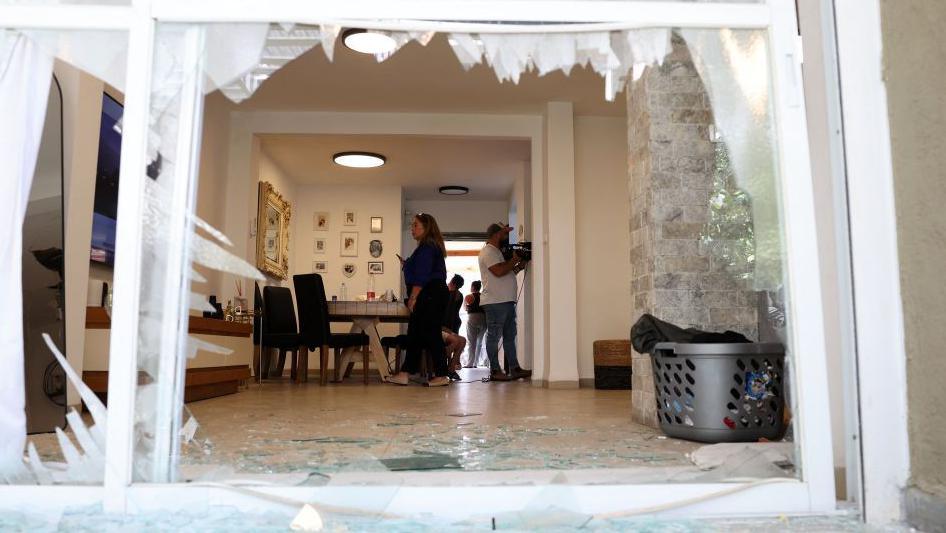Lebanese relief as Hezbollah and Israel seem to step back from brink
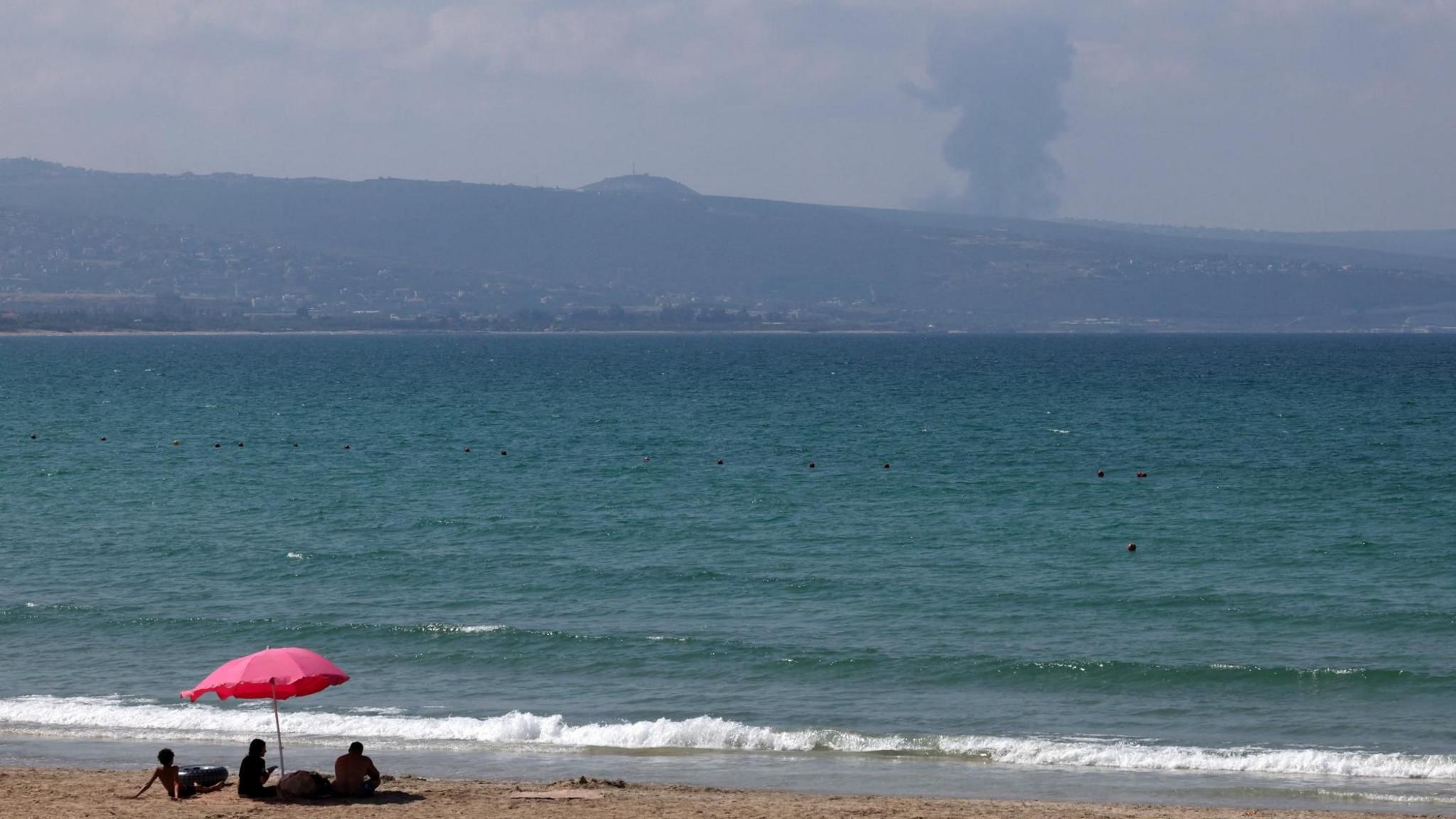
Beachgoers in Tyre saw smoke rising from the Lebanon-Israel border during Sunday's strikes
- Published
For almost a month, many here in Lebanon have been on tenterhooks, waiting for Hezbollah to retaliate against Israel. The region was waiting also, wondering if this would be the spark for a wider war.
Everyone knew the powerful Iranian-backed group would seek revenge for Israel’s assassination on 30 July of a top military commander, Fuad Shukr. The Israelis managed to hunt him down deep in Hezbollah’s heartland of South Beirut. That was both a strategic loss and a public humiliation.
Just hours later, Hamas leader Ismail Haniyeh was assassinated in Tehran, in what bore all the hallmarks of another Israeli operation. But Iran continues to signal that its retaliation could be a long-term project.
At 05:15 on Sunday, Hezbollah made its move, launching more than 300 Katyusha rockets and “a large number of drones” across the border into Israel. This was revenge served cold. It was carefully calibrated, and it was less than some had expected.
Hezbollah said it targeted 11 military bases and barracks, and claimed its attack was a success. The Israel Defense Forces (IDF) said most of the rockets missed their mark.
Either way, Hezbollah did not train its sights on major cities in Israel, or on critical infrastructure. And it did not bring out its big guns. The group - which is classed as a terrorist organisation by the UK and the US - is believed to have more arms than many nations.
Israel had got in first, at 04:30, flooding the sky with fighter jets targeting Hezbollah firing positions. The IDF said this “pre-emptive strike" destroyed thousands of rocket launchers.
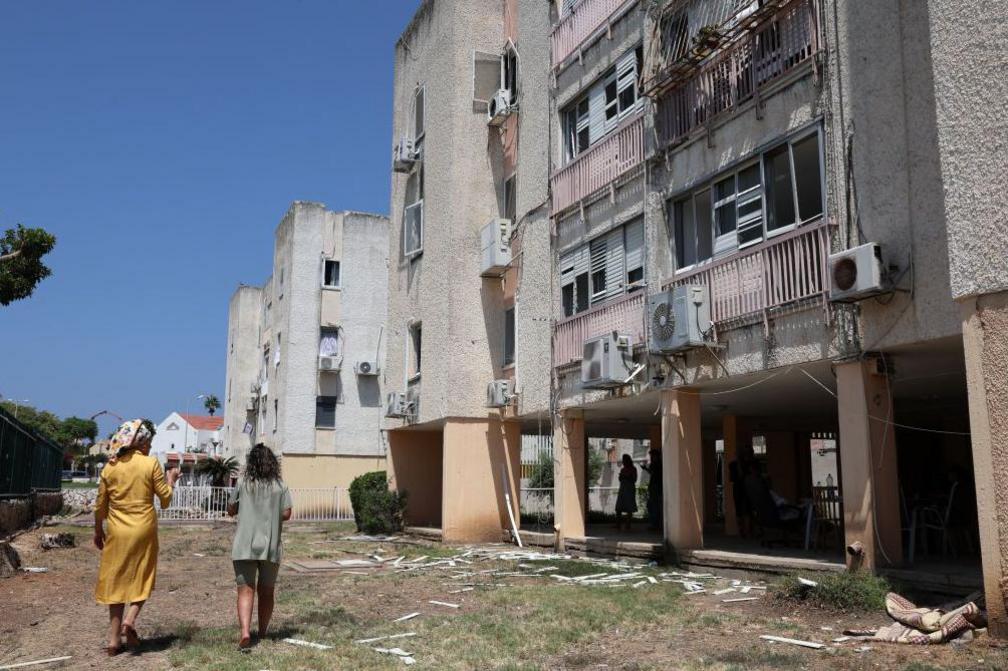
Hezbollah rocket fire damaged several homes in the Israeli coastal town of Acre
It was the biggest flare-up here since the Gaza war began last October, after Hamas killed about 1,200 people in Israel in a single day.
Since then, Hezbollah has been trading fire with Israel across their shared border, showing support for its ally Hamas, and proclaiming solidarity with the people of Gaza.
So where are we now, one day on? Surprisingly, perhaps, the Middle East may be a little safer.
Both sides have delivered a message, but stopped short of all-out war. And Hezbollah has signalled it’s ready to close the Fuad Shukr chapter - for the moment.
“We reserve our right to continue the response at a later point, but for now, the people can be at ease and carry on with their lives,” said Sheikh Hassan Nasrallah, the leader of Hezbollah.
After a tense month, that was a welcome message for many here.
He was addressing his supporters on TV from an undisclosed location - he might be at the top of Israel’s assassination list.
The Israeli Prime Minister, Benjamin Netanyahu, said Sunday’s strikes against Hezbollah were “not the end of the story”.
But diplomats told the Reuters news agency that both sides had exchanged messages saying they didn’t want a further escalation.
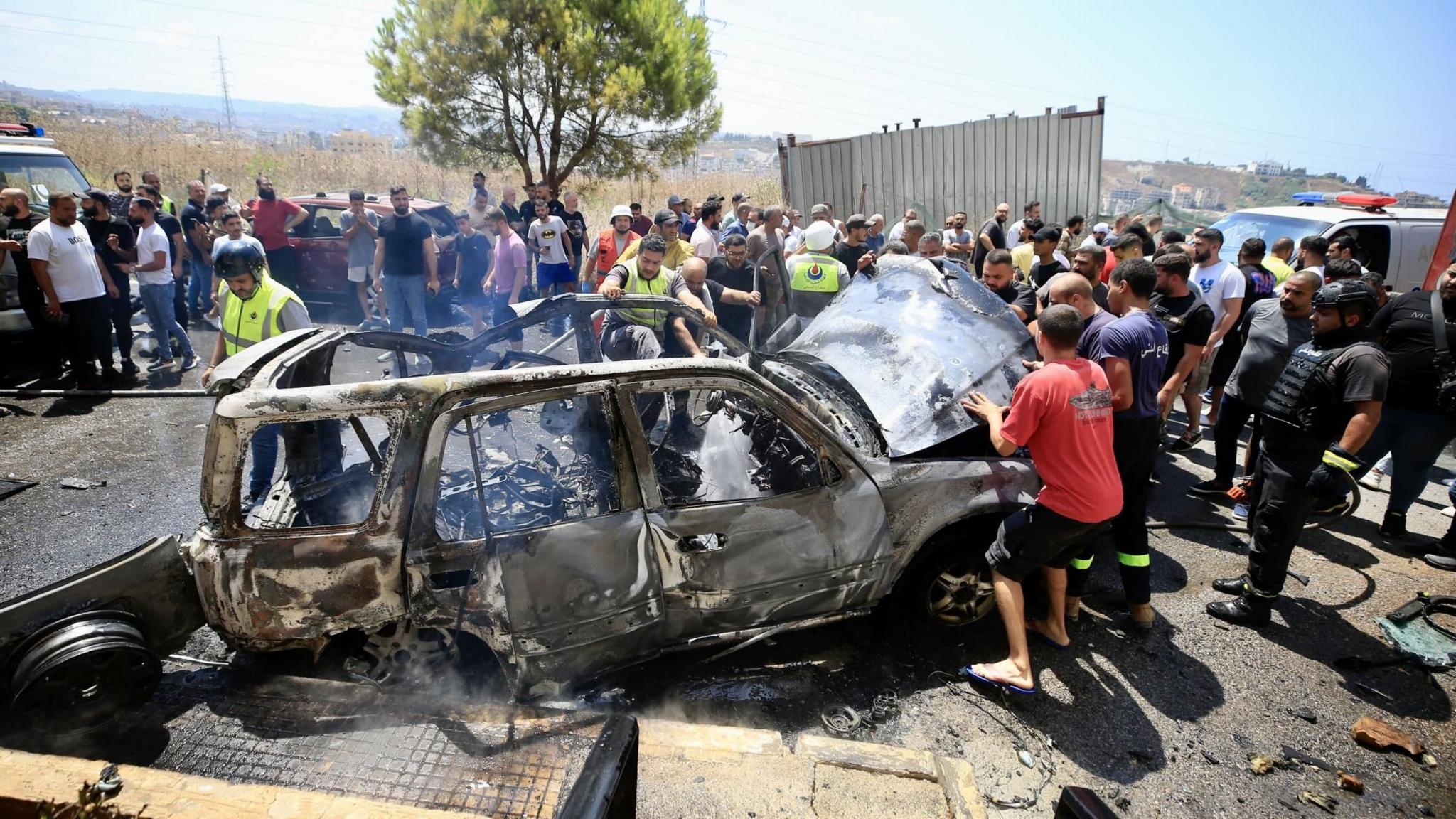
A Hamas leader reportedly survived an Israeli drone strike in the southern Lebanese port city of Sidon on Monday
Here in southern Lebanon, there is already a return to the usual low-level conflict.
Israel has just attempted another assassination, leaving a burning car on the scorching streets of Sidon, a port city. Local sources say the target was a Hamas leader, who managed to jump out in time.
Along the coast in the city of Tyre, Israeli jets are swooping low, breaking the sound barrier - but the beach below is more crowded.
“Everything feels calm today,” said a young man in his 20s who did not want to be named.
“Everything returned to normal. The streets have been quiet, but people have come back out. Today, people can breathe.”
Hezbollah said it delayed its retaliation to give time for talks on a ceasefire in Gaza. But the latest round of talks in Egypt has ended with no apparent progress.
And while the war in Gaza drags on, in all its horror, it is fuelling instability across the Middle East.
Related topics
- Published26 August 2024
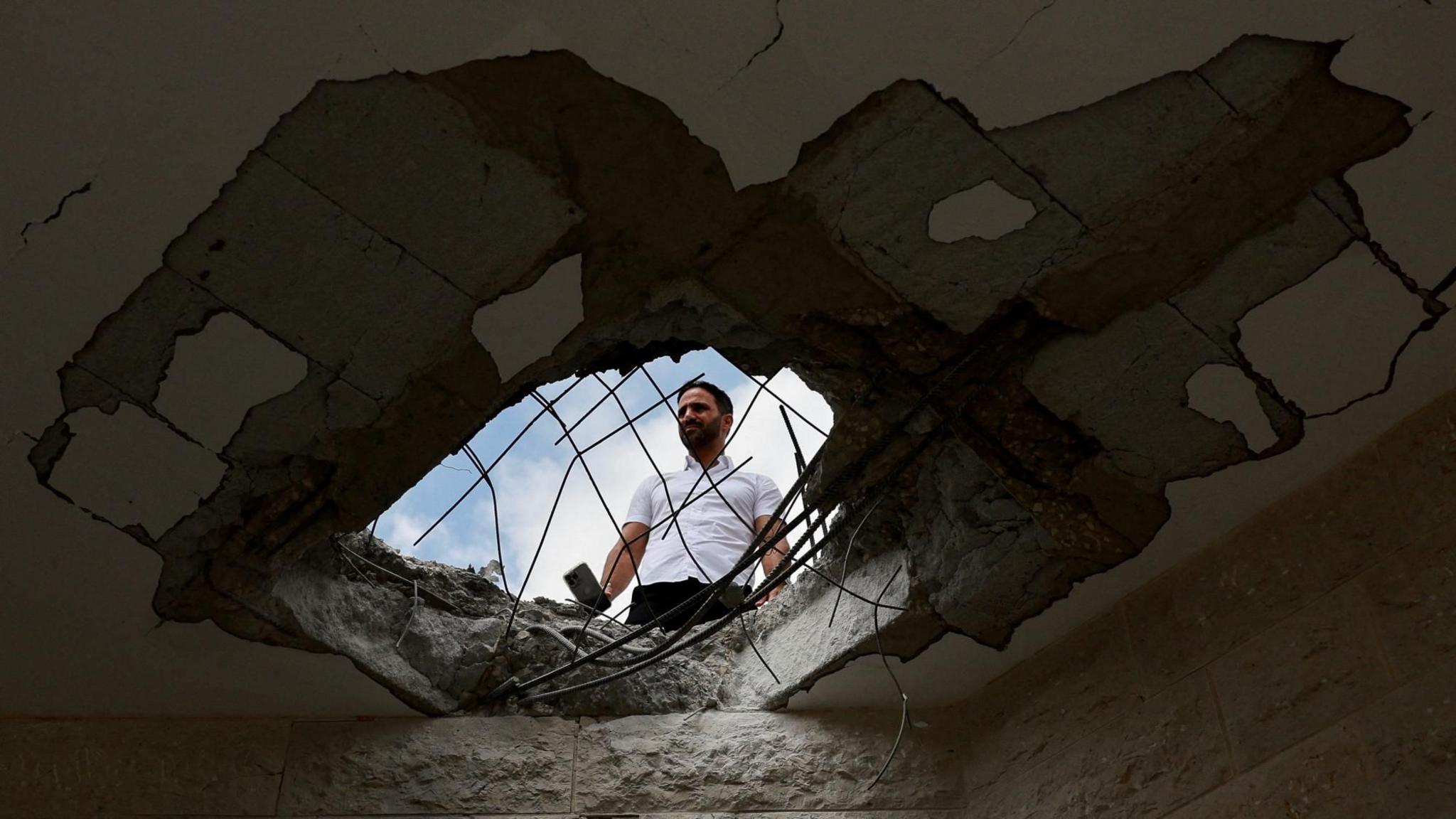
- Published25 August 2024
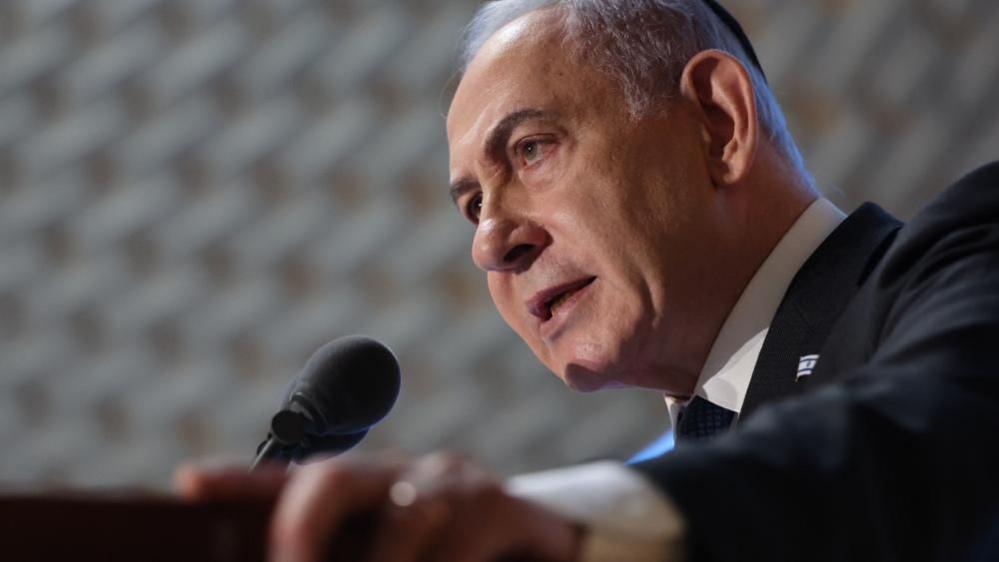
- Published26 August 2024
